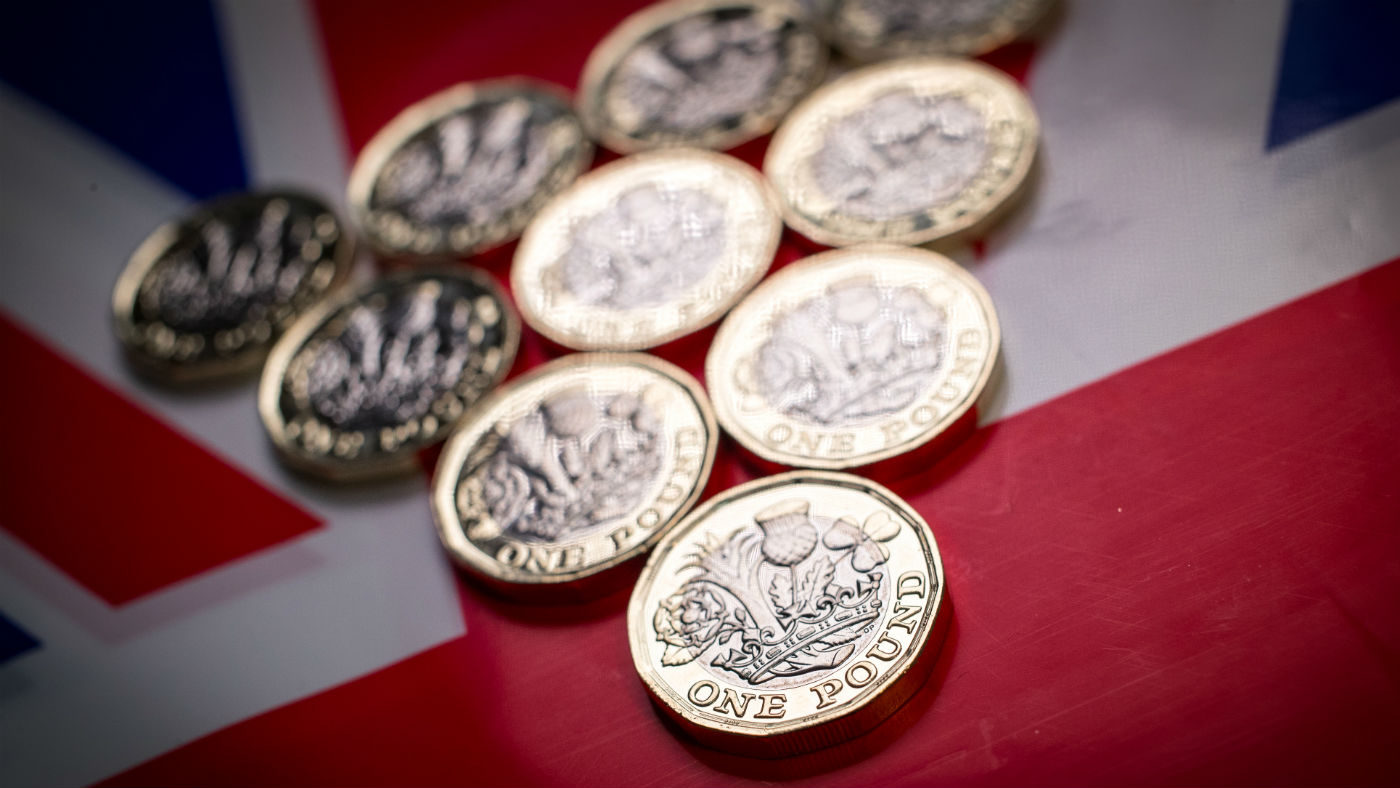Will ‘Boris bounce’ for businesses last?
Series of economic indicators suggest UK economy could turn corner after Brexit deadlock broken

A free daily email with the biggest news stories of the day – and the best features from TheWeek.com
You are now subscribed
Your newsletter sign-up was successful
A number of economic indicators suggest UK businesses are enjoying a “Boris bounce” in consumer confidence and spending after the Tories’ decisive general election win in December broke the deadlock over Brexit.
Years of political gridlock and uncertainty around the UK leaving the EU has “resulted in investment and hiring decisions being postponed, inevitably having a knock-on effect elsewhere”, says Sky News.
It means GDP growth for 2019 is expected to match the 1.3% it hit in 2018, making both years the weakest for economic growth since the UK emerged from the global financial crisis a decade ago
The Week
Escape your echo chamber. Get the facts behind the news, plus analysis from multiple perspectives.

Sign up for The Week's Free Newsletters
From our morning news briefing to a weekly Good News Newsletter, get the best of The Week delivered directly to your inbox.
From our morning news briefing to a weekly Good News Newsletter, get the best of The Week delivered directly to your inbox.
“But the fact that the election has delivered a decisive majority for one party, for the first time since 2005, has delivered an element of certainty for business leaders - not only over Brexit in particular but over the wider economy in general,” says Sky News.
Reuters says that “although it remains to be seen if the pickup in confidence will translate into a meaningful boost to growth, economists have been heartened by the range of indicators that have perked up over the last month”.
British companies are enjoying their best month in more than a year, according to the IHS Markit/CIPS UK Purchasing Managers’ Index (PMI), “amid signs that a more stable political backdrop and resolution to Brexit will boost business this year”, says This is Money.
The survey showed growth across services companies resumed in January for the first time since August, while a downturn in manufacturing eased, “weakening the case for a Bank of England interest rate cut this week” says Reuters.
A free daily email with the biggest news stories of the day – and the best features from TheWeek.com
Tim Moore, associate director of economics at IHS Markit, said: “The modest rebound in new work provides another signal that business conditions should begin to improve in the coming months, helped by a boost to business sentiment from greater Brexit clarity and a more predictable political landscape.”
But not all are so optimistic.
According to more than 85 leading economists who responded to the Financial Times’ annual survey of UK economic growth, the coming year holds little prospect of a lasting improvement.
The paper reports that “the majority predicted that any pick-up in growth following Boris Johnson’s decisive election win in December may be short-lived because businesses still have little idea of the UK’s eventual trading relationship with the EU, and the UK’s chronic productivity problem is unlikely to ease”.
“In the medium term, few investors expect British growth to speed up much from its current pace of just over 1% a year” says William Schomberg for Reuters, noting that “immediately after the shock decision by British voters to leave the EU in 2016, the PMIs suggested the economy was nose-diving, only to stabilise soon afterwards”.
–––––––––––––––––––––––––––––––For a round-up of the most important business stories and tips for the week’s best shares - try The Week magazine. Start your trial subscription today –––––––––––––––––––––––––––––––
-
 Why is the Trump administration talking about ‘Western civilization’?
Why is the Trump administration talking about ‘Western civilization’?Talking Points Rubio says Europe, US bonded by religion and ancestry
-
 Quentin Deranque: a student’s death energizes the French far right
Quentin Deranque: a student’s death energizes the French far rightIN THE SPOTLIGHT Reactions to the violent killing of an ultraconservative activist offer a glimpse at the culture wars roiling France ahead of next year’s elections.
-
 Secured vs. unsecured loans: how do they differ and which is better?
Secured vs. unsecured loans: how do they differ and which is better?the explainer They are distinguished by the level of risk and the inclusion of collateral
-
 Can the UK avoid the Trump tariff bombshell?
Can the UK avoid the Trump tariff bombshell?Today's Big Question President says UK is 'way out of line' but it may still escape worst of US trade levies
-
 Five years on, can Labour's reset fix Brexit?
Five years on, can Labour's reset fix Brexit?Today's Big Question Keir Starmer's revised deal could end up a 'messy' compromise that 'fails to satisfy anyone'
-
 Why au pairs might become a thing of the past
Why au pairs might become a thing of the pastUnder The Radar Brexit and wage ruling are threatening the 'mutually beneficial arrangement'
-
 Brexit: where we are four years on
Brexit: where we are four years onThe Explainer Questions around immigration, trade and Northern Ireland remain as 'divisive as ever'
-
 Is it time for Britons to accept they are poorer?
Is it time for Britons to accept they are poorer?Today's Big Question Remark from Bank of England’s Huw Pill condemned as ‘tin-eared’
-
 Is Brexit to blame for the current financial crisis?
Is Brexit to blame for the current financial crisis?Talking Point Some economists say leaving the EU is behind Britain’s worsening finances but others question the data
-
 The cost-of-living support available from government
The cost-of-living support available from governmentfeature Downing Street says no further measures will be rolled out before new PM is in place
-
 Labour shortages: the ‘most urgent problem’ facing the UK economy right now
Labour shortages: the ‘most urgent problem’ facing the UK economy right nowSpeed Read Britain is currently in the grip of an ‘employment crisis’